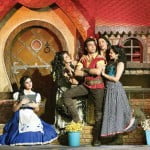
For a brand that carries a near iconic status with Indian bikers, Eicher’s Royal Enfield seems to have hit a wall with one of its most prestigious product lines, the Continental GT. Sales of the bike have halved during the first seven months of the year, even as the combined sales of all Royal Enfield products has grown by 51 per cent in the April-November period. For some of its models like the Classic 350/500 and Thunderbird, dealers say, there is a waiting period of nearly 11 months on orders. But, with the Continental it is a different story altogether. Customers have stayed away, perhaps intimidated by the price (Rs 2.04 lakh ex-showroom, Mumbai), or as some owners have reported, due to the uncomfortable ride it offers.
Launched after a six month long build-up, the Continental GT, inspired by cafe racers (a term popularised by British biking enthusiasts in the 1960s, these are bikes that are optimised for speed rather than comfort), has become a drag on the Royal Enfield. In fact when the bike was launched in London (an India launch came later), it created quite a splash and was expected to sweep the market with its looks and rugged image. For a few months it seemed as if the brand would live up to its promise, but that turned out to be a false start.
Sales of Continental GT during the April-October 2015 period have closed at 980 units as against 2,035 units sold in the same period a year ago, marking a drop of 52 per cent. A mail sent to Eicher Motors seeking comments for the story went unanswered at the time of going to press. But Abdul Majeed, partner, PwC, said, “Royal Enfield’s competence is in the 250-500cc where it is very strong. Above 500cc there is competition from foreign players.”
Many believe that price is a deterrent. The Continental GT is the most expensive bike in the Royal Enfield line-up, priced nearly twice the company’s biggest volume churner Classic 350. But the Continental sells at half the price of a Harley, which sold more than 3,000 units of the 750cc Street (its cheapest model) last financial year. In comparison Continental GT managed to clock just 2,800-odd units. Abdul Majeed says, “Customer’s value proposition for foreign brands is far better than Royal Enfield. Customer always associates a brand with a specific segment operating in a particular engine band.”

Besides price, the other main deterrent, say bikers is the seating comfort. Owners have reported uncomfortable seating leading to displeasing long rides with a sore back. Besides there were reports of uncomfortably high heat emanating from the engine bay making even short rides in hot summers an uneasy task. This has turned bikers away from the brand even though, nine out of every ten Continental buyers have owned a Royal Enfield model before. This means that the brand has failed to click even with the Royal Enfield loyalists.
Continental’s performance is starkly different from the other models in the Royal stable. Combined sales of other Royal Enfield models stood at 2,73,676 units for April-October 2015-16, clocking a 54 per cent growth over 1,78,176 units sold in the comparable period last year, as per data shared by the Society of Indian Automobile Manufacturers (SIAM).
Launched in November 2013 the Continental GT is the lightest, fastest, most powerful bike with the biggest engine in the Royal Enfield India line-up. The single-seater city tourer was meant to appeal to the trendy city buyer looking for a technologically modern machine. It was given a 1960s-styled retro-look, in keeping with the bikes it was modelled after. Cafe racers of the 1960s and Royal Enfield’s own 1965 Continental GT – the first mass produced cafe racer of its time – were the main design inspirations for this motorcycle. It’s stretched out low-profile fuel tank with knee recesses provided the bike with a unique look.
Cafe racing as a culture evolved during the 1960s and involved motorcycle enthusiasts using stripped down, customised, fast motorcycles to race between transport cafes (truck stops). They were simple machines that could be moulded easily to the needs of bikers. The Continental, while it drew its inspiration from the cafe racer models, had everything designed afresh – the only exception was its single cylinder, air-cooled 535cc engine. Royal Enfield worked with UK-based Harris Performance Products (which Royal Enfield went on to buy earlier this year for an undisclosed amount) to create the chassis for the Continental GT. It worked closely with Xenophya Design of UK to get the overall look right.
Despite this, the brand has failed to gather speed in the Indian markets. Meanwhile competing models such as the Honda CBR 250, KTM Duke 390, Bajaj Pulsar RS 200, KTM RC 390, Hyosung GT 250, Benelli TNT 250 and the Kawasaki Ninja 250 have sped ahead. With prices starting from around Rs 1.8 lakh and running up to Rs 3 lakh on the street, these bikes are hugely popular. Bengaluru for instance has sold 100 Benelli bikes in three months. Clearly then, lack of demand is not what is holding back Continental. Eicher will need to rethink its branding and positioning strategies, if Continental has to race with the rest.
[“source -business-standard”]




